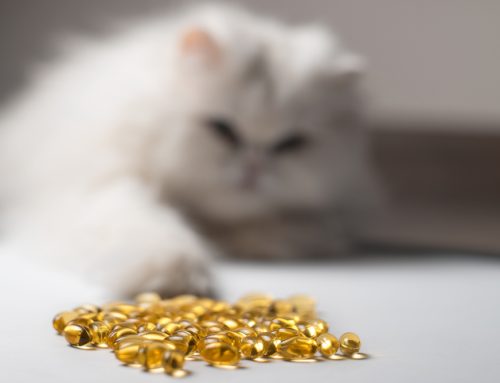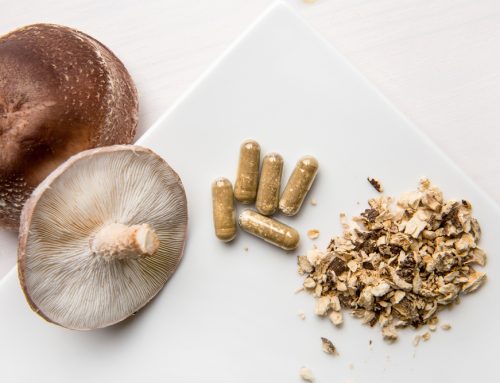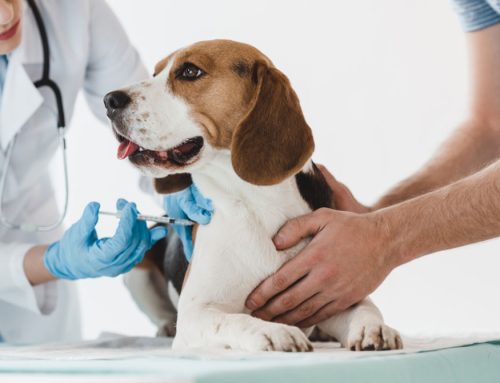Your pet’s health is more than a sum of their body systems—it’s a constellation of complex and interconnected processes impacted by their internal and external environment. Dental health is one good example, because an unhealthy mouth can damage the liver, kidneys, and heart, and ultimately shorten your pet’s life.
At Meridian Veterinary Center, our integrative approach to dentistry means we recognize and understand your pet’s need for regular dental care, and we are dedicated to providing pets accessible, effective, and comprehensive oral health services by combining traditional treatments (i.e., dental cleaning and X-rays under anesthesia) with less common, non-anesthetic dental cleanings.
Barriers to pet dental health
Dental disease (i.e., periodontal disease) is one of the most commonly diagnosed pet disorders. Despite advances in veterinary treatment, innovative home care products, and increased public awareness, one barrier to routine veterinary dental care—anesthesia—persists.
Traditional veterinary dentistry requires that pets undergo general anesthesia to ensure their safety, comfort, and absolute stillness. And, while we take the utmost care and precaution with our anesthetic dentistry patients, including preoperative testing, individualized medication protocols, and continuous vitals monitoring, we recognize that the process can frighten pet owners and may prevent them from scheduling regular (i.e., every 6 to 12 months) dental cleanings. Unfortunately, this postponement often allows dental disease to progress, causing unnecessary pain, infection, and ultimate tooth-loss.
Non-anesthetic pet dental cleanings
The non-anesthetic dental cleaning is an outpatient, sedation-free procedure where we remove visible tartar and invisible plaque from your pet’s teeth using low-stress handling and gentle dental techniques. However, non-anesthetic dental cleanings are not a replacement for or an alternative to anesthetic dentistry—they are intended as a complementary therapy, with unique advantages, including:
- Early disease detection — Examining your pet’s gums and teeth more frequently can reveal subtle warning signs, while more regular scaling and polishing can uncover hidden disease.
- Oral health preservation — Dedicated oral health routines (e.g., brushing, integrative dentistry, and as-needed dental cleanings under anesthesia) can effectively prevent periodontal disease when initiated early.
- Slowing periodontal disease progression — When disease is already present, regular cleaning breaks the painful tooth decay and damage cycle by removing harmful bacteria.
- Extending the time between dental cleanings under anesthesia — Most pets require a full dental cleaning and X-rays under anesthesia every 6 to 12 months. However, more frequent non-anesthetic cleanings may prolong a deep cleaning’s positive benefits and make their need less frequent.
Because non-anesthetic dentistry first became popular at non-veterinary facilities (e.g., grooming shops, dog training centers), its efficacy and safety has been questioned. However, as with all Meridian Veterinary Care services, we’ve carefully designed our non-anesthetic dental cleanings with your pet’s safety, comfort, and health in mind.
What’s included in a non-anesthetic pet dental cleaning
Each non-anesthetic dental at Meridian Veterinary Care includes:
- Veterinary assessment — To ensure non-anesthetic dentistry is right for your pet, we require an examination prior to scheduling to evaluate your pet for visible disease signs, such as dental fractures, gingivitis, pain, or mouth tumors, because these conditions require anesthesia for dental X-rays, tooth removal (i.e., extraction), or oral surgery.
- Individualized treatment plan — Your pet is unique, and so is their care. Your pet’s treatment plan is veterinarian-designed specifically for their dental needs.
- Specialty-trained technicians — Skilled Animal Dental Care veterinary technicians comfort and calm your pet while gently performing the recommended preventive care.
- Oral charting — We chart each tooth individually and assess them for damage, tartar, or pathology along the gumline (e.g., gingivitis, resorptive lesions).
- Periodontal probing — As a part of the charting process, we carefully examine each side of every tooth for periodontal pockets (i.e., gaps) between the tooth and the gum—a periodontal disease indicator. If we see any pockets or disease signs, we will discontinue the cleaning and recommend a full dental procedure under anesthesia.
- Ultrasonic scaling — In a healthy mouth, we clean each tooth individually with a high-tech ultrasonic scaler that uses soundwaves to remove debris and bacteria above and below the gumline.
- Polishing — After we remove plaque and tartar, we polish the teeth to smooth out any tiny imperfections and deter bacteria attachment.
- Recommendations — Based on your pet’s oral screening, charting, and cleaning, our veterinarian will make specific suggestions for improving your pet’s dental health. These may include:
- Scheduling a dental cleaning and X-rays under anesthesia
- Scheduling another non-anesthetic dental cleaning in three to six months
- Brushing your pet’s teeth at home daily
- Using a dental supplement (e.g., Standard Process Bio Dent or Plaque Off)
- Feeding an appropriate diet
- Providing healthy dental chews (e.g., Vetriscience Perio Plus Sticks)
Adding non-anesthetic dentistry to your pet’s care routine

An oral assessment is part of our commitment to your pet’s comprehensive health and a key part of every pet exam. That’s why, at each visit, you’ll see us “lift the lip” to look for dental or gingival abnormalities, and then make specific recommendations for your pet’s care. But, because dental health is an ongoing concern, we suggest that you make a habit of checking your pet’s mouth daily for early dental disease signs (e.g., red or swollen gums, visible tartar, bad breath).
To learn more about non-anesthetic dentistry or schedule an appointment to find out if your pet is a candidate, contact Meridian Veterinary Care.







Leave A Comment